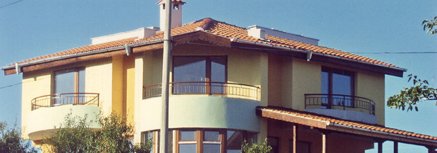|
Country profile: Bulgaria
A Balkan country with spectacular mountains and a coastline on the Black Sea, Bulgaria was part of the Ottoman empire for around 500 years, although the Orthodox tradition remained strong. Bulgarian is a Slavic language.
After the second world war the country was a satellite of the Soviet Union for nearly half a century. It celebrated success in its bid for integration into western alliances when it became a Nato member in March 2004.
Its transition to democracy and a market economy after the collapse of communism has not been easy.
Throughout the first half of the 1990s, Bulgaria was wracked by political instability and strikes. The former communists remained a powerful influence. Although the end of the decade was more stable, there was little tangible progress with economic reform.
Under Bulgaria's former king, Simeon II, who was prime minister between 2001 and 2005, the country pressed ahead with market reforms designed to meet EU economic targets. The country achieved growth, saw unemployment fall from highs of nearly 20 per cent and inflation come under control but incomes and living standards remained low.
Bulgaria was not included in the list of countries invited to join the EU in 2004. However, it signed an EU accession treaty in April 2005 and, depending on the pace of reforms, hopes to be on course for membership in 2007. EU officials have warned that much more must be done to tackle high-level corruption and organised crime. An announcement on whether or not it can join in 2007 is expected in October.
Another potential sticking point is the Kozloduy nuclear power plant which supplies around half of Bulgaria's electricity and earns millions of dollars for the country from electricity exports.
Under pressure from the EU, the Bulgarians agreed to shut the two oldest reactors at the end of 2002. Despite Bulgarian insistence that extensive safety improvements have been introduced in recent years, Brussels also wants two of the remaining four reactors to close.
Population: 7.8 million (UN, 2005)
Capital: Sofia
Area: 110,994 sq km (42,855 sq miles)
Major language: Bulgarian
Major religion: Christianity
Life expectancy: 69 years (men), 76 years (women) (UN)
Monetary unit: 1 lev = 100 stotinki
Main exports: Chemicals and plastics, food and drink, tobacco, machine-building equipment
GNI per capita: US $3,450 (World Bank, 2006)
Internet domain: .bg
International dialling code: +359
http://news.bbc.co.uk/1/hi/world/europe/country_profiles/1059735.stm
|

